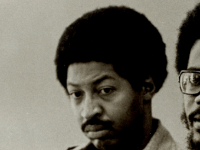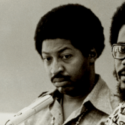 The U.S. Census Bureau has released its annual report on income and poverty in the United States. According to data in the report, the median income of Black households in the United States in 2013 was $34,598. The median income figure shows the point where half of all families earn below this level and half earn above. For non-Hispanic White households in 2013, the median income figure was $58,270. Thus, the median income level for Black households was 59 percent of the median income for non-Hispanic White households. With only minor fluctuations, the racial gap in median income has remained virtually unchanged for the past 40 years.
The U.S. Census Bureau has released its annual report on income and poverty in the United States. According to data in the report, the median income of Black households in the United States in 2013 was $34,598. The median income figure shows the point where half of all families earn below this level and half earn above. For non-Hispanic White households in 2013, the median income figure was $58,270. Thus, the median income level for Black households was 59 percent of the median income for non-Hispanic White households. With only minor fluctuations, the racial gap in median income has remained virtually unchanged for the past 40 years.
It is important to look at the racial gap in income at the highest levels. These families are ones that can afford to send their children to the college of their choice without having to worry about financial aid or student loans. Slightly more than 25 percent of non-Hispanic White households in 2013 had income above $100,000. For Black households, 11.9 percent had income of more than $100,000. Thus, Whites are more than twice as likely as Blacks to come from high income households.
If we raise the bar to families with higher incomes, we find that White households are more than three times as likely as Black households to have incomes of more than $200,000 per year.
The full report, Income and Poverty in the United States, 2013, may be downloaded by clicking here.











well… this is what centuries of slavery with no real reparations upon ’emancipation’ will get you.
Should we be “surprised”? Too many of us believe that racial discrimination died “FIFTY YEAES AGO”! Besides many of us do not want to be within 50 miles of any poor people. “Those folks should work hard like I did, it is Their own, lazy fault they are poor.”